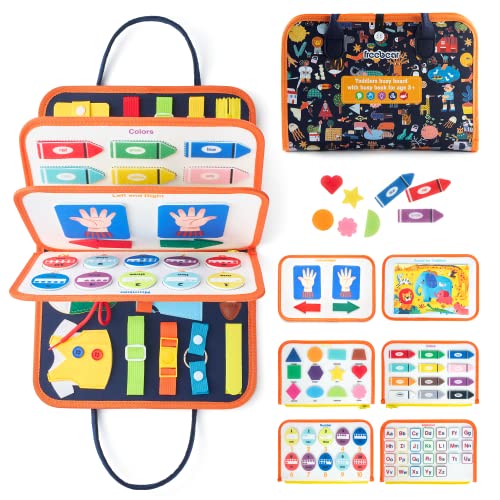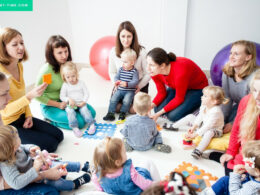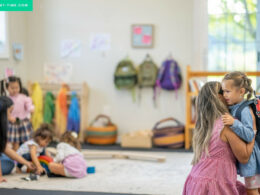In This Article Show
As a mum of three, I’ve been down this path not once, not twice, but three times. Each time, it came with its own unique blend of anticipation, excitement, and (let’s admit it) a bit of anxiety. If you’re reading this, chances are you’re about to embark on this very journey, or you’re right in the midst of it. And trust me, I get it.
Daycare can be a game-changer for many families. It allows our little ones to learn, socialize, and grow in a new environment. But let’s not kid ourselves; that transition can be a bit rocky. That initial drop-off, the nervous look in their eyes (and yours), and the inevitable surge of emotions… Oh, the rollercoaster of parenthood!
So, whether you’re a first-timer or revisiting this experience (like my third time around, which did not mean I had it all figured out), I’ve compiled a list of tips to make this shift into daycare life just a tad smoother. Let’s dive in, shall we?
Understanding the Importance of Transition
Transitioning to daycare isn’t just about packing a cute little lunchbox or choosing the perfect first-day outfit (though those moments are undeniably special). At its core, this shift marks one of the early, significant steps in our child’s journey to independence. Here’s why it’s more profound than we sometimes realize:
1. Growth and Exploration
Remember the first time your little one tried to feed themselves, making an adorable mess in the process? Or their initial wobbly steps? Those were moments of exploration, of pushing boundaries. Daycare is a continuation of that spirit. It’s a new world, filled with toys, activities, and peers waiting to be discovered.
1. Social Skills
As much as we cherish our one-on-one moments with our kiddos, there’s something magical about watching them from their very first friendships. Daycare offers them a chance to learn essential social skills: sharing, communication, and even a bit of conflict resolution.
Great deals to snatch for your little ones 🎉
3. Building Resilience
Let’s be honest; not every day at daycare is going to be sunshine and rainbows. There’ll be challenges: a toy disagreement, missing mum and dad, or adapting to a different routine. Yet, in these moments, our children develop resilience and adaptability, vital life skills.
4. A Break for Parents
This isn’t just about the little ones. Parents, especially us mums, often stretch themselves thin juggling many responsibilities. Daycare can provide that much-needed breather, whether focusing on work, catching up on rest, or enjoying a hot cuppa without interruptions.
5. Preparing for Future Transitions
Believe it or not, this daycare transition sets the tone for future changes in your child’s life, be it moving to a new class, joining extracurricular activities, or even the distant thought of college. Getting them accustomed to change in a supportive environment can be invaluable.
To sum it up
While the process might come with its fair share of teary goodbyes or nervous mornings, it’s all part of a bigger picture. It’s about growth, both for our children and us.
Tips for Easing Your Child into Daycare Life
Ah, the moment you’ve been waiting for! Drawing from my own experiences and the wisdom of countless mums before me, here are some tried-and-true methods to help your little one embrace daycare with open arms (or at least with a few fewer tears):
Emotional Preparation
Tip 1: Start Talking Early and Positively

Begin discussing the idea of daycare weeks before the big day. Talk about it like it’s an exciting adventure. Describe all the fun things they’ll do, the new friends they’ll make, and the cool toys they’ll get to play with. Your enthusiasm can be contagious!
Tip 2: Read Together
A wealth of children’s books talk about going to daycare or school. Reading these together can help your child visualize and become more comfortable with the concept.
Tip 3: Role-play Daycare Scenarios
Play “pretend daycare” at home. You can be the caregiver, and they can be the student. Swap roles too! This helps them understand the dynamics and eases some of the unknowns.
Practical Preparation
Tip 4: Set a Consistent Routine
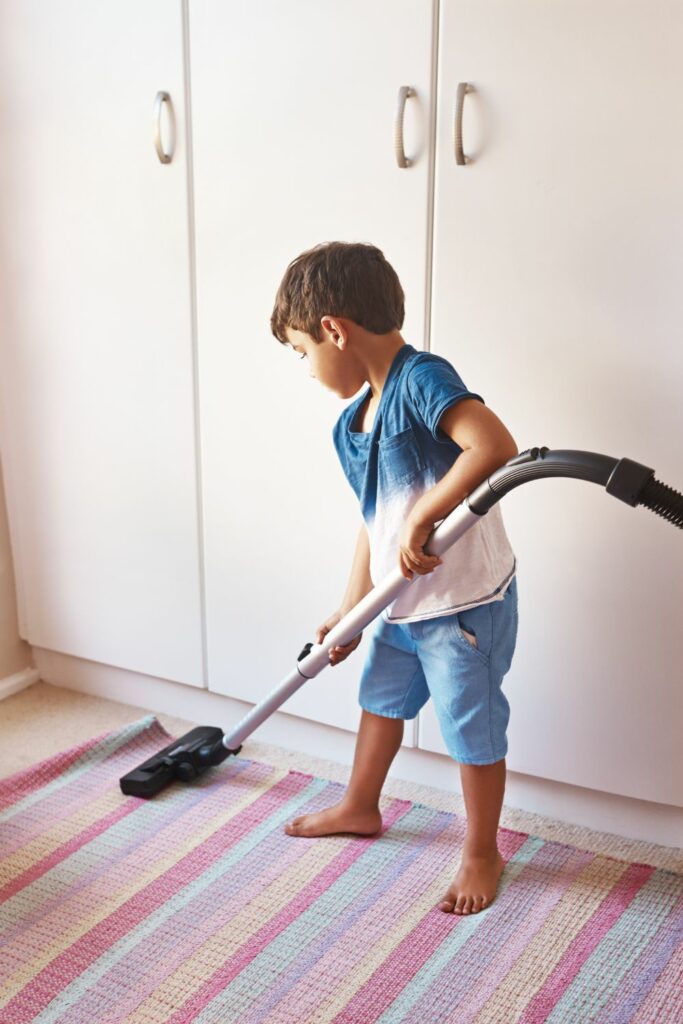
Kids thrive on routine. Before daycare begins, try to emulate a similar schedule at home. If daycare starts at 8 a.m., ensure your child is up, dressed, and has had breakfast by then.
Tip 5: Familiarize with Visits
If possible, visit the daycare with your child a few times before the actual start. Let them explore the environment while you’re still around, making it familiar territory.
Tip 6: Comfort from Home
Sometimes, a piece of home can ease the transition. Whether it’s a favorite teddy, a cherished blanket, or a beloved storybook, ask the daycare if your child can bring it along, at least in the beginning.
Communication is Key
Tip 7: Discuss Anxieties with Caregivers

Your child’s caregivers are your allies in this journey. Share any concerns or specific needs your child might have. They’re experienced in handling such transitions and can offer valuable insights.
Tip 8: Open Conversations with Your Child
Create a safe space where your child feels comfortable expressing their feelings. Whether they’re excited, scared, or curious, let them talk, and validate their emotions.
Tip 9: Stay Updated
Most daycares offer a daily report or update. Make it a point to review this and discuss the day’s events with your child. It shows them that you’re involved and interested in their new world.
The First Day and Beyond
The anticipation leading up to that first day at daycare is immense. But once you’ve crossed that bridge, how do you ensure that every subsequent day is a positive experience for both you and your little one?
Tip 10: Confident Goodbyes

On my second child’s first day, she clung to me like a koala to a tree. It’s natural. But I learned that dragging out the farewell only heightens anxiety. A quick, confident kiss and a promise to return can work wonders. And trust me, it’s okay if you shed a tear or two in the car afterward (I’ve been there).
Tip 11: Words of Encouragement
Every morning, remind your child of something fun they can look forward to at daycare. Maybe it’s a painting activity or story time with their new friends. Shifting the focus to a positive can start the day on the right foot.
Tip 12: Be Punctual with Pickups
For our little ones, trust is monumental. Picking them up on time, especially in the early days, helps reinforce the idea that you’ll always be there for them. Plus, hearing about their day right away can be the highlight of yours!
Staying Engaged
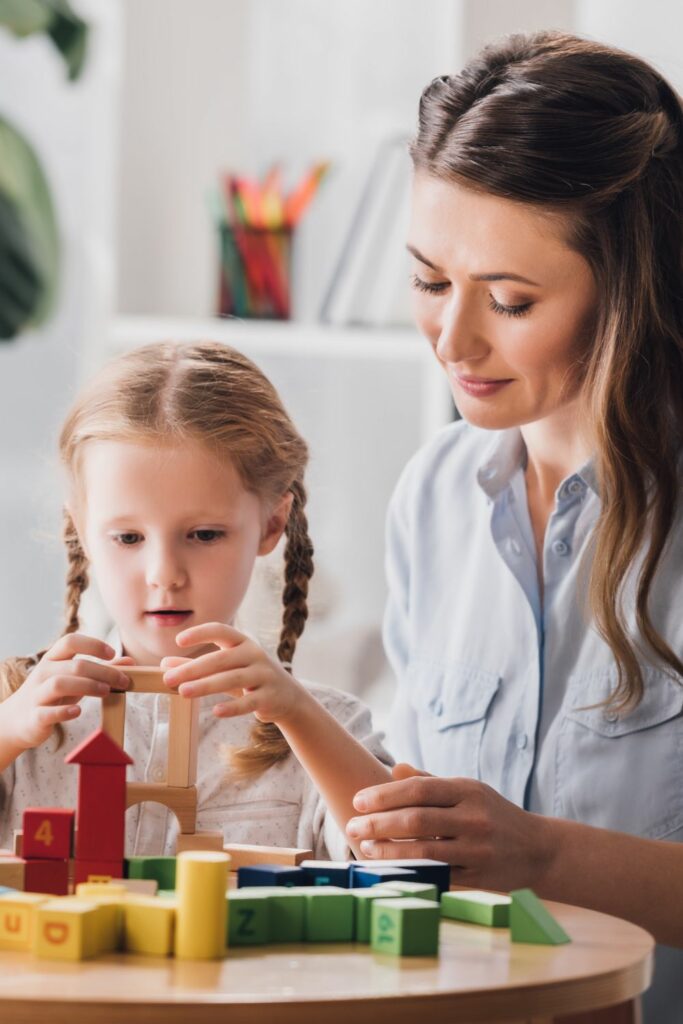
As the days turn into weeks and months, staying engaged with your child’s daycare experience is essential.
Tip 13: Attend Parent Events
Many daycares host occasional parent-teacher meetings or special events. These are fantastic opportunities to understand your child’s progress, connect with caregivers, and show your child that you value their new environment.
Tip 14: Keep Communication Lines Open
Whether it’s a concern about your child’s behavior or a simple query about the menu, don’t hesitate to communicate with the staff. Being proactive can nip potential issues in the bud.
Health and Wellbeing
Daycare is as much about emotional well-being as it is about physical health.
Tip 15: Prioritize Sleep

A well-rested child is more likely to have a positive daycare experience. Ensure they’re getting enough sleep, which can help them stay alert, cheerful, and more adaptable to the daycare routine.
Tip 16: Nutritious Breakfast
A good start to the day includes a nutritious breakfast. Foods rich in protein and whole grains can provide sustained energy and improve concentration.
Tip 17: Monitor Health
Little ones in close quarters can mean occasional sniffles. Stay vigilant about your child’s health, and inform the daycare if they’re under the weather to protect other kids and staff.
Conclusion
From one mum of three to another parent out there, remember, every child is unique. What works wonders for one might need tweaking for another. But with patience, love, and a little preparation, the transition into daycare can be a beautiful chapter in your child’s growth story.








